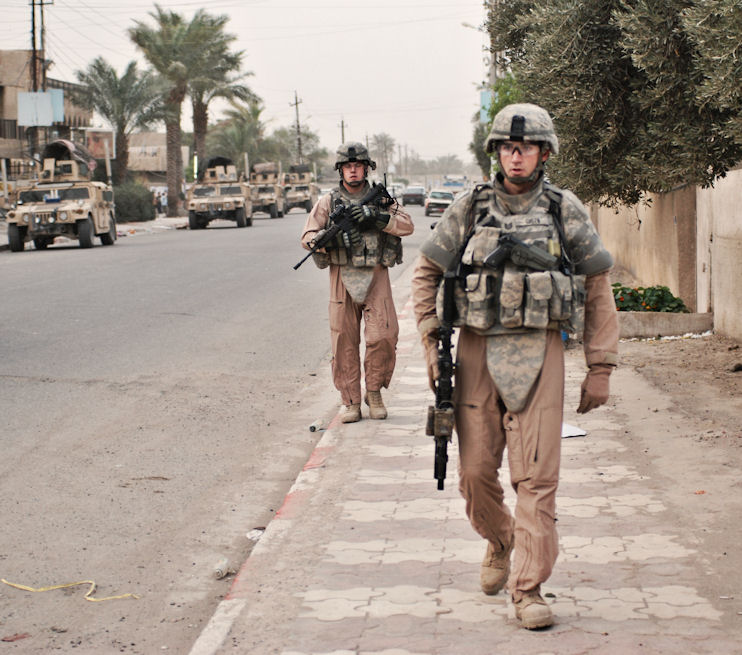Last week Jonathan Panikoff posted a stream of clap-trap and nonsense at Small Wars Journal to support his headline that, in Syria, “The True Chaos Will Begin After the Fall of the Regime.”
Why do I sigh? Mr. Panikoff is, of course, correct, if by “chaos” he means lots of people will be killed. I’m not certain that’s what he means, but I think it is at least part of it. Two things are troubling. First, the point has nothing to do with Syria: it is a general point that holds anywhere that an irregular transfer of power takes place a new state must assert its authority. Charles Tilly taught us this, first in his study of the French Revolution (The Vendee, 1964), and more generally in From Mobilization to Revolution(1978, see esp. pp. 191, 214-22). Yet Mr. Panikoff fails to mention this.
Instead, and this is the second part that wears on me, he trucks in what used to be Sovietology, which is a form of interpretation and prognostication akin to what one finds on ESPN: experts familiar with the names of various principals opine about the interests of each, intrigue among them, coalitions, etc. These folks are, as far as I can discern, blissfully unaware of the extent to which their ideas and interpretations are colored by standard narratives in their culture (ranging from children’s tales, fiction for adult consumption, and religious texts, to learned scholarship). In that sense it is rather unfair for me to pick on Mr. Panikoff, for he is but one of literally thousands of analysts who engage in this practice. Please take this critique, then, as targeting those analyses of which Mr. Panikoff’s is but one example.
Charles Tilly’s work (by which I am largely referring to his pre-1990 writing) was unusually informative. But perhaps the point most strongly branded onto my brain by Chuck are points three and four on pp. 218-29 of From Mobilization to Revolution. It illuminates beautifully (1) why you are an ignoramus if you wear a Che Guevara t-shirt (he directly oversaw the slaughter of thousands of Cubans denied due process, but if you like mass murders, by all means, celebrate Che) and (2) why so many of us were stunned beyond words when the Bush administration banned Ba’athists, who made up the overwhelmingly majority of Iraq’s military and police forces, from government service, thus creating a “monopoly of coercion” vacuum.
Third, the revolutionary coalition is likely to fragment once the initial seizure of control over the central government apparatus occurs, and that fragmentation itself tends to produce further struggles involving violence…. Fourth, the victorious polity still faces the problem of reimposing routine governmental control over the subject population… As the government returns to its work of extracting and redistributing resources, it finds people reluctant to pay taxes, give up their land, send their sons to war…. And so a new round of violent imposition and violent resistance begins.
Tilly continues to make several interesting claims, and I leave it to those interested to pursue them. I wish to emphasize both the abstract concepts and his use of active voice. Tilly’s work provides us with neutral concepts such as challenger, contender, coalition, and bureaucratic apparatus. He speaks of mobilization processes, routine governance, and competition. He also recognizes that government impose control, extract taxes, and redistribute resources. These are activities pursued by a self interested state, challenged by groups of people who prefer not to cooperate, if they can. It is absolutely devoid of Manichean narrative: there are no “white hats” or “black hats” to be found. Yet Charles Tilly is dead, and as I search for evidence of the impact of his work, I fear it may be shrinking, not growing.
Returning to posts like that offered by Mr. Pannikoff’s, such analyses of ”coming chaos in Syria” fail not only to add content to what we learned from Tilly, they actually subtract content by leading us to view what might happen next through the same lenses we might use as we consume Survivor, a soap opera, or The Walking Dead. And that, folks, is why I sigh.
@WilHMoo







3 comments
If you’re going to apply the “mass murderer” label to Che’, you better be prepared to say the same about Washington, Lincoln (who went so far as to suspend habeas corpus), Andrew Jackson, and plenty of other American political icons. I’m not claiming Che’ didn’t have people killed, rather that the US political pantheon is pack to the brim with people who did likewise. It’s hypocritical, plain and simple.
Roqeuntin, thanks for commenting, and I apologize for my tardy reply. I don’t know why you might imagine me a hypocrite on this issue, but since you raise the question, I will answer. In every human rights course I teach I point out Lincoln’s suspension of habeus corpus, and frequently do so in conversation (though not yet on this blog), especially during the past decade. Andrew Jackson committed genocide (though we did not have that term back then) on a larger scale than his contemporaries, and while I am not well versed in the history of 19th century US presidents, it is certainly true that most, if not all, engaged at some level in what today would be recognized as crimes against humanity.
Perhaps you are suggesting that the use of US currency is a form of hypocrisy. If so, I plead guilty. I have spent some time trying to figure out how to avoid the use of Jackson ($20 bill) in particular, but have failed to come up with anything I find appealing. Please feel free to share any ideas you might have.
Lastly, if you might direct myself (and others) to such crimes by Washington, I will be appreciative as I confess my reading there has been rather scant.